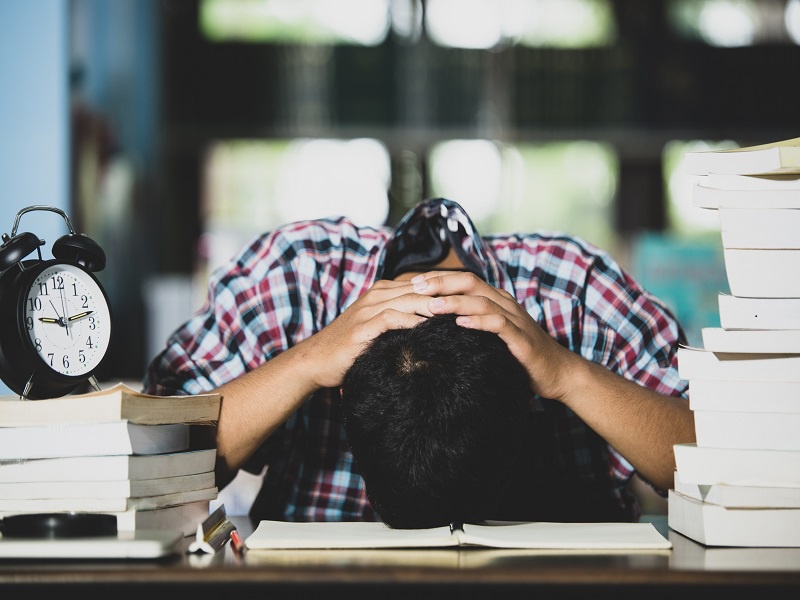Students are not exempt from problems with their mental health, which is a crucial component of total well-being. Students today deal with a variety of stresses that can harm their mental health. In this post, we'll examine the most significant mental health issues affecting students and discuss practical coping mechanisms. We want to help students on their path to better mental health by bringing awareness to the issue and offering advice.
Academic Pressure:
One of the primary mental health concerns among students is academic pressure. The expectations to perform well, excel in exams, and meet deadlines can lead to stress, anxiety, and burnout.
To deal with this, students should:
- Set realistic goals and prioritize tasks.
- Practice time management and create a study schedule.
- Seek support from teachers, mentors, or tutors when needed.
- By taking regular pauses, obtaining enough sleep, and participating in things they enjoy, one can practice self-care.
Anxiety and Stress:
Anxiety and stress are prevalent mental health issues among students. The pressures of academic performance, social interactions, and future uncertainties can contribute to these problems. Strategies to manage anxiety and stress include:
- Deep breathing exercises, meditation, or mindfulness techniques.
- Engaging in physical activity or hobbies to release tension.
- Seeking support from friends, family, or mental health professionals.
- Developing healthy coping mechanisms like journaling or talking about their concerns.
Depression and Mood Disorders:
Many students struggle with depression, a significant mental health problem. Depression, pessimism, and a decline in interest in activities are typical symptoms. To address depression and mood disorders, students should:
- Reach out to a trusted adult, counselor, or therapist.
- Build a strong support network of friends and loved ones.
- Engage in regular exercise, as it can boost mood and overall well-being.
- Positive self-talk and self-compassion exercises should be done.

Social Pressures and Loneliness:
Students often face social pressures to fit in, establish friendships, and maintain a social image. Feelings of loneliness and isolation can negatively impact mental health. Strategies to combat social forces and loneliness include:
- Seeking support from student counseling services or support groups.
- Initiating conversations and building connections with peers.
- Utilizing technology to connect with friends and family, especially during challenging times.
Substance Abuse and Addiction:
Substance abuse can be a manifestation of underlying mental health issues. Students may use drugs or alcohol as a coping mechanism for stress or other difficulties. To address substance abuse and addiction, students should:
- Seek professional help through counseling or rehabilitation programs.
- Build a strong support system for individuals who prioritize their well-being.
- Engage in healthy coping mechanisms like exercise, creative outlets, or therapy.
- Learn as much as they can about the hazards and effects of substance usage.
Conclusion:
Students' overall well-being and academic success depend on placing a high priority on their mental health. By recognizing and addressing the biggest mental health problems they face, students can develop healthy coping strategies and seek appropriate support. It is critical to foster an atmosphere that supports candid discussions about mental health and encourages students to seek assistance when necessary. With the right tools and support, students can navigate these challenges and thrive in their educational journey while maintaining good mental health.
Faq’s
Q: How can anxiety disorders be dealt with in students?
A: Dealing with anxiety disorders in students involves techniques such as teaching stress management skills, promoting relaxation techniques, encouraging open communication, providing a supportive environment, and seeking professional help when necessary.
Q: When should professionals be involved in helping students with mental health problems?
A: Professionals should be involved when mental health problems in students become persistent, severe, or significantly impact their daily functioning, academic performance, or overall well-being.
Q: How can students deal with anxiety?
A: Students can deal with anxiety by practicing relaxation techniques like deep breathing and mindfulness, seeking support from friends, family, or counseling services, engaging in regular physical activity, and managing their time effectively.
What ought college students to do if they exhibit depressive symptoms?
A: It's critical for pupils to seek assistance if they show signs of depression. They can talk to a trusted adult, seek counseling services or therapy, establish a routine that includes self-care activities, and consider joining support groups.
How can students deal with problems related to substance abuse?
A: professional intervention, such as counseling or rehabilitation programs, should be sought for students who are struggling with substance usage. Building a support network, avoiding triggers and high-risk situations, and engaging in healthy coping mechanisms like exercise or creative activities can also aid in overcoming substance abuse.


No comments yet